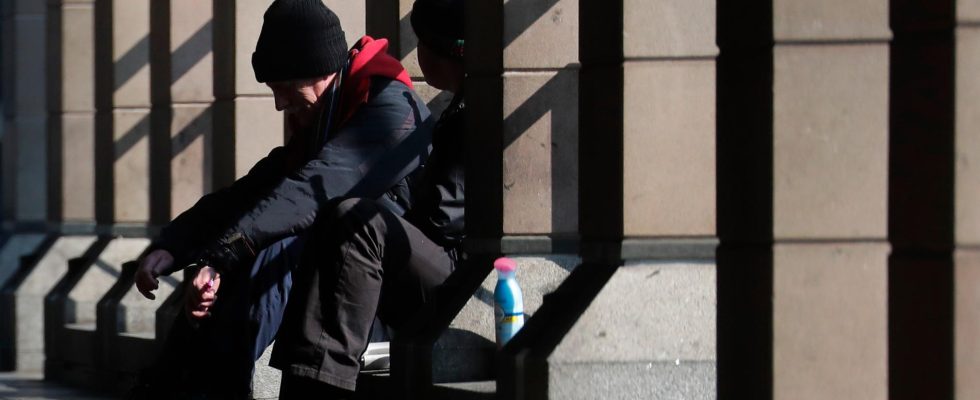full screen
Next
Number of people sleeping outdoors in England increased by 26 per cent between 2021 and 2022. File image.
1 / 2Photo: Frank Augstein/AP/TT
Few homes, high rents and stagnant wages make life difficult for many English people. So difficult that many are forced to leave their homes.
– A complete change in politics is needed for it to get better, says Carin Tunåker, who researches homelessness in England.
A 60-year-old man hurts himself and cannot continue his job at the municipality. He is taking early retirement, but the pension is not enough to pay the rent. He moves between acquaintances until there is no other choice but to sleep outside. The man ends up in the wrong circles and starts taking drugs.
A 17-year-old boy tells his homophobic parents about his homosexuality and is kicked out. He suffers from mental illness and lives with his aunt for a while before moving to a charity. After two years, he is kicked out again.
These are two of many homeless people that Swedish Carin Tunåker, lecturer in law and PhD in social anthropology at the University of Kent, has met in her work. Homelessness in Great Britain has increased enormously in the last ten years, especially in England, she says.
– We are in a homelessness crisis right now, and it looks like it will only get worse.
The majority are English
The main reason for the crisis is that there are not enough houses for people to live in. And the housing that exists has too high rents, which many cannot afford to pay, she explains.
In October 2022, UK inflation peaked at 11.1 percent. It is the highest figure in 41 years. During the past year, the number of people sleeping outdoors (“rough sleeping”) in England has also increased by 26 percent, according to statistics from the government.
Many homeless people are in the cities, but a large number choose to go to the countryside. According to a charity, the number of homeless people in rural areas has increased by 40 percent in five years.
– It is safer there. There is more violence, crime and drug abuse in the cities, which many want to get away from. But those in rural areas risk being left out of the official homeless statistics. You can’t find them and those who are registered are only the tip of the iceberg, she says.
The majority of the homeless are British, few come from other countries. There is help available, but the criteria are difficult to meet. Only about 16 percent of all those who applied at the end of 2023 met the requirements.
New form of homelessness
Alongside poor finances, mental illness is a common thread among the homeless. In addition to homelessness itself, which often brings with it depression and psychological problems, many people have relationship problems and other things in their baggage, says Carin Tunåker.
– Many associate homelessness with vagrants or beggars who have drug and alcohol problems. Homelessness is a completely different thing these days and can affect anyone, she says.
Carin Tunåker is convinced that the situation will only get worse if the housing crisis is not reversed and social care is prioritized.
– There is not enough help. There are hugely long queues to get help for mental illness right now. It is quite obvious that the lack of social care has led to the great crisis of homelessness we have now.
FACTS “Rough sleeping”
In the UK, “rough sleeping” refers to people who sleep outdoors or in tents. The term “homelessness” also includes people who live in temporary shelters, with friends and acquaintances and who do not have a permanent home.
Most people who sleep outside are men who are over 26 years old. The number of people sleeping outdoors increased by 26 percent (626 people) between 2021 and 2022.
London is the city where the number of people spending the night without a roof over their heads has increased the most. In 2022, 858 people slept outdoors compared to 640 people the year before. This is an increase of 34 percent (218 people).
Source: British Government
Read more
